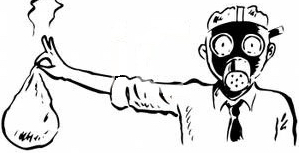 I’ve been sharing information with Early Childhood Educators all over the world lately, and I am continually surprised at the innocence of their questions and requests for advice about what should be very simple logical issues in their classrooms.
I’ve been sharing information with Early Childhood Educators all over the world lately, and I am continually surprised at the innocence of their questions and requests for advice about what should be very simple logical issues in their classrooms.
Many of the teachers on Facebook and other internet groups ask for advice on behaviors that are absolutely normal and developmental, teaching techniques that should not be new to them, and issues that should have been covered in the most basic pre-employment training classes.
I understand the need for new teachers to be inquisitive, need support, and to reach out for assistance, but it worries me that either the training they have received or the employment standards of their program are in great need of overhauling and updating.
Here are some of the most basic basics in early ed:
Teaching children from birth to six is NOT like teaching in Big School – young children learn best (and sometimes ONLY) when they Move; Manipulate; Create; Use their Senses (see, feel, smell, hear, and yes, taste) to make conclusions about things, ideas, and facts; Role Play (imitate and imagine); and Express their learning through words and the Arts. They do NOT learn best (and sometimes not at all) from rote drill, one-dimensional, one-way worksheets, being made to stretch way beyond their attention span listening to the teacher, or being expected to behave well beyond their developmental levels.
You cannot be a fault finder, a ‘my way or the highway’ professor, a googly eyes on their art adjuster, a readiness before they are ready pusher, or an eye-rolling critique of behavior judge.
You need to keep them safe physically and emotionally; sit on the floor and play WITH them; sit at the table and eat WITH them; listen to, respect, and post their words; CHANGE NOTHING THEY MAKE/DO TO SUIT YOUR IDEA OF WHAT IS “RIGHT”; react firmly to unsafe behaviors but let the little stuff like nose picking, table manners, interrupting, not listening, not participating in whole group stuff GO!
You need to be a protector, a respecter, a cheerleader, a community builder, an observer, an A+ student of child development, a poopy pants changer, a glitter scraper, a laugher, and a stage setter of developmentally appropriate learning experiences to be a good early educator.
Ask for advice, observe the best teachers in your program, take classes, and then relax and love it. I do.